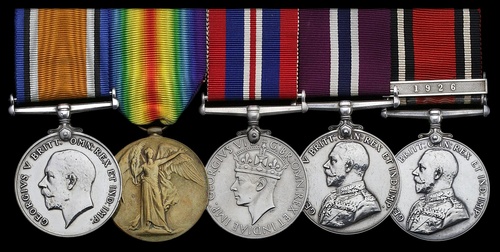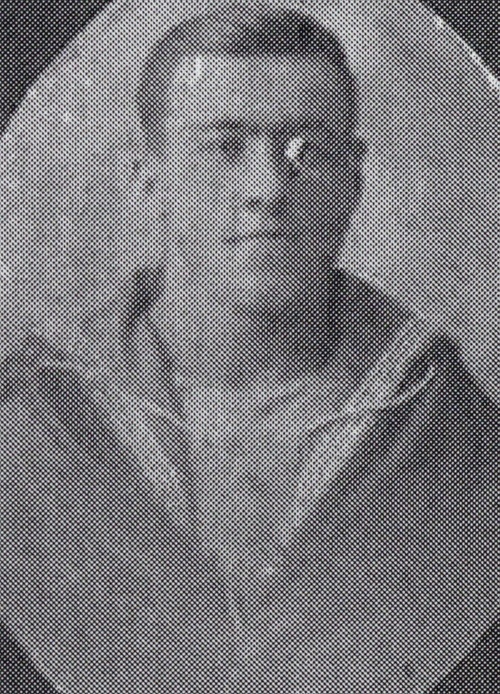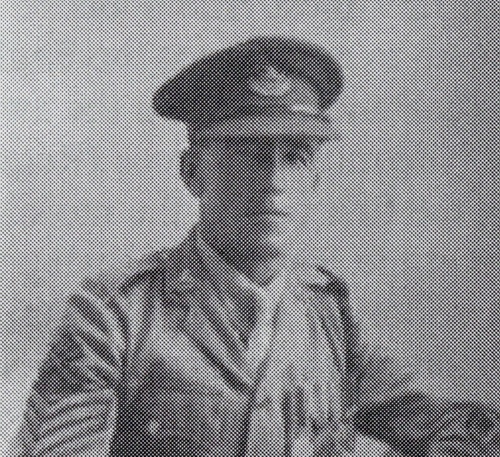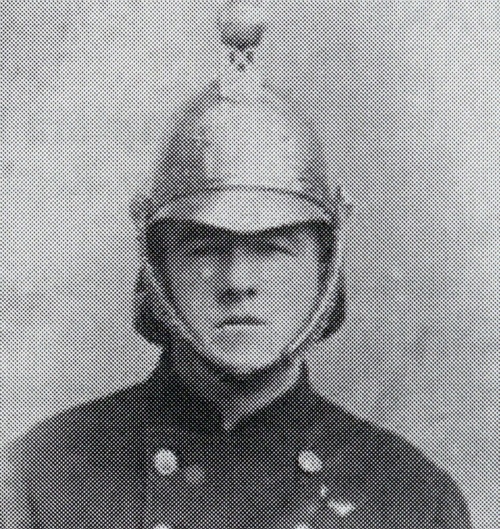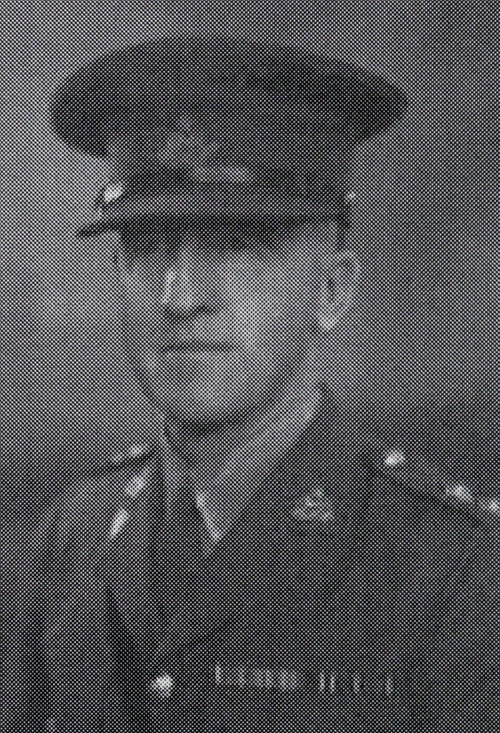Auction: 20001 - Orders, Decorations and Medals - conducted behind closed doors
Lot: 693
An outstanding Army Best Shot group of five awarded to Captain F. G. Elliott, British South Africa Police, late London Fire Brigade and Royal Navy, who witnessed extensive service in German South West Africa and won the King's Medal at Bisley in 1926 - he was the first Rhodesian to take the prize
British War and Victory Medals (1752 Cpl. F. G. Elliott. B.S.A.P.); War Medal 1939-45; Permanent Forces of the Empire Beyond the Seas L.S. & G.C., G.V.R. (No. 1752. Sergt. Francis G. Elliott. British South Africa Police); Army Best Shot Medal, G.V.R., 1 clasp, 1926 (1752 Sjt. F. G. Elliott. B.S.A.P.), minor contact wear, otherwise very fine and better (5)
Francis Graham 'Navy' Elliott was born on 28 March 1888 at Glasgow, Scotland, and enlisted into the Royal Navy on his eighteenth birthday. An assistant steward by occupation, he trained under sail aboard Caledonia and then witnessed service aboard the cruiser Gladiator and battleship Prince of Wales. His Stations included the Channel Fleet, Home Fleet and East India Squadron, being engaged in the suppression of gun-running traffic in the Red Sea, Persian Gulf and Somaliland Coast whilst at the latter. A 1st Class Naval Marksman (The British South Africa Police in the Great War, refers), he purchased his discharge on 26 July 1912 having served half the term to which he had signed up for in 1906, and joined the Royal Fleet Reserve.
Living in London, Elliott became a member of the London Fire Brigade from 1912-13 and was stationed at Brigade Headquarters. He left to join the British South Africa Police in Rhodesia, attesting as a Trooper and serving at various District stations including Hartley, Battlefields and Gatooma. Following a District Musketry Instructor's Course in Depot, Elliott was appointed to the Instructional Staff by the Camp Commandant and was tasked with the training of Askari in P.T., bayonet fighting, musketry and Lewis guns. He was also seconded to the Defence Department on occasion as an Instructor.
Great War Service
At the commencement of the Great War, Elliott reported to Naval authorities at Simonstown but was not called up. Instead he relocated to the Transvaal border and became a member of the Mobile Columns formed to resist invasion from the Transvaal and from German South West Africa. He did not receive the 1914-15 Star as these Columns were not granted war awards - somewhat controversially, given that they were on active war service. Serving as part of Murray's Column and later as a member of the Rhodesia Native Regiment, Elliott served from 20 February 1916-14 April 1918 in German East Africa, much of the first year being spent 'practically without rest' (The British South Africa Police in the Great War, refers). Pushing to Bismarcksburg and on to Malangali and Iringa, the column faced an almost daily attrition of numbers from disease and enemy contact:
'On the 8th September (1916) we again found the enemy occupying a commanding position, and it fell to our lot to make a very uncomfortable night march through swamps and over high hills to outflank him. On the 9th we were fired on by an enemy patrol, and they succeeded in wounding Sgt. Ashmead and one askari. We drove the enemy off and worked our way round to the rear of the main position.'
The advance into 'German East' became a case of continuous foot slogging, exacerbated by steep terrain and 'prickled bushes' which made stepping off the winding footpaths a foolish enterprise. During the wet season, when the so-called roads had become rivers and the rivers were swollen torrents, the men were forced to improvise and cross via pontoons which were hastily made from fastened logs and nailed planks. Even the canoes on occasion had to be lashed together:
'On one occasion some canoes overturned and the occupants, heavily accoutred, had a hard struggle for life; one man, indeed, was carried away and drowned' (The diary of Surgeon-Captain R. R. Murray, refers).
Having survived the attentions of the Huns, Elliott was invalided to England in September 1918, likely as a result of malarial fever or exposure to the elements. He remained there for almost a year, being repatriated to Rhodesia in August 1919. Offered a commission to the King's African Rifles, he instead opted to resume duty with the B.S.A. Police, transferring in 1927 to the Permanent Staff Corps at the invitation of the Commandant, Southern Rhodesia Forces. Promoted Warrant Officer 1st Class, Elliott took the opportunity to switch over to the clerical side of operations, leaving the 'bombast, bounce and bluster' to others - including the inclement weather. He was however permitted to continue to instruct in musketry, likely as a result of his reputation amongst the senior ranks.
A Gifted Marksman
Endeavouring to practise what he taught, Elliott was selected for the 1924 Rhodesia Team detailed to compete at the Imperial Bisley Meeting. On this occasion the team did not travel, but the following year Elliott gained a place in the King's Prize Final, more commonly known as 'The King's Hundred'. In July 1926, whilst serving as a Sergeant in the B.S.A. Police, he won the King's Medal for rifle shooting at Bisley with a score of 164 points which carried with it the title of Champion Shot of the Military Forces of Southern Rhodesia. His achievement in winning this 'blue riband' event and defeating 34 fellow competitors was headline news at home:
'The success of the Police competitors at the twelfth annual Bisley is my now a byword throughout the country. "Navy" Elliott carrying off the King's Medal raised enthusiasm in the hearts of everyone, and when he carried off the double event by taking the Major Inskipp Cup, the earth was his and all that was in it for the asking' (The Outpost, July 1926, refers). Elliott experienced further success in 1932, winning the King's Medal elimination events, the Service Rifle Championship and the Services Aggregate. He also shot for Mashonaland and served as an instructor in musketry to the Umtali High School Cadets.
Second World War Service
Commissioned Lieutenant in July 1939, and appointed Quartermaster, Eastern Division soon thereafter, Elliott remained serving very much in a clerical capacity - much to his annoyance:
'Made several verbal applications and one written one to be relieved of this appointment and to be given one more suited to my training and qualifications. No result. In consequence, promotion and usefulness jammed' (The Precis Record of Service, refers).
Increasingly frustrated, his application to retire five months sooner than would have been the case was granted in March 1943 by the Defence Headquarters, Southern Rhodesia Forces. Appointed Captain with effect from 31 October 1942, his name was placed upon the Retired List. Elliott died on 8 January 1954; sold with a brass B.S.A.P. cap badge and a pair of Rhodesia Regiment shoulder titles, extensive copied research, including newspaper cuttings and typed service record details, and an original copy of The British South Africa Police in the Great War - With the Photographs of Sergeant F. G. Elliott, compiled and edited by author John Berry. This contains numerous photographs of Elliott and offers an excellent insight into his life and that of his comrades during the Great War.
For the recipient's mounted group of dress miniatures, see Lot 1172.
Subject to 20% VAT on Buyer’s Premium. For more information please view Terms and Conditions for Buyers.
Sold for
£3,200
Starting price
£1800

